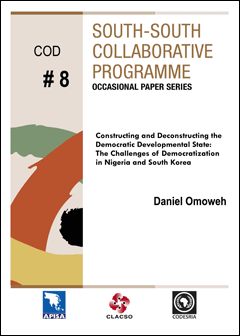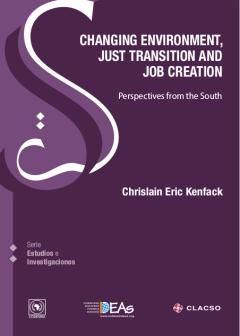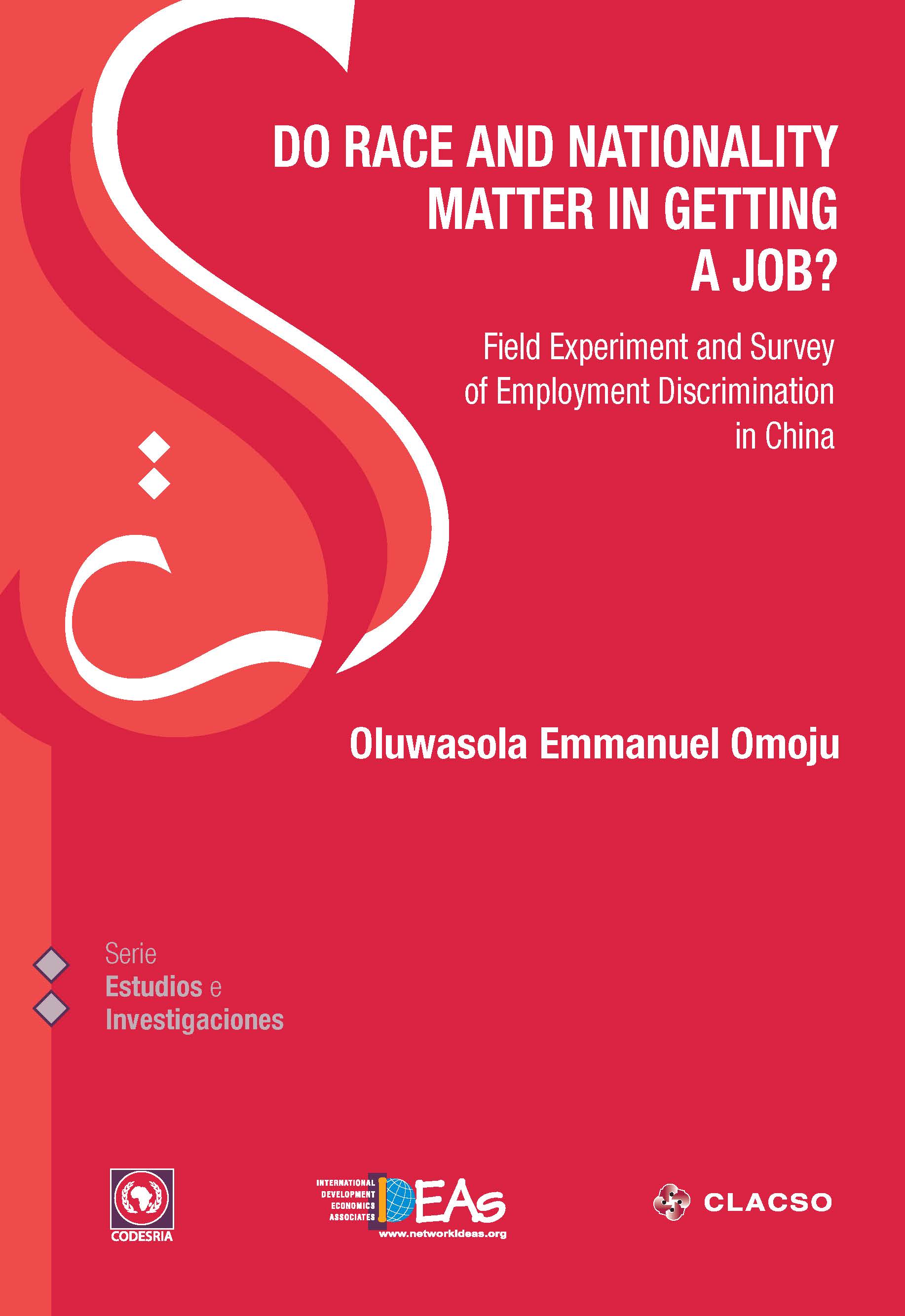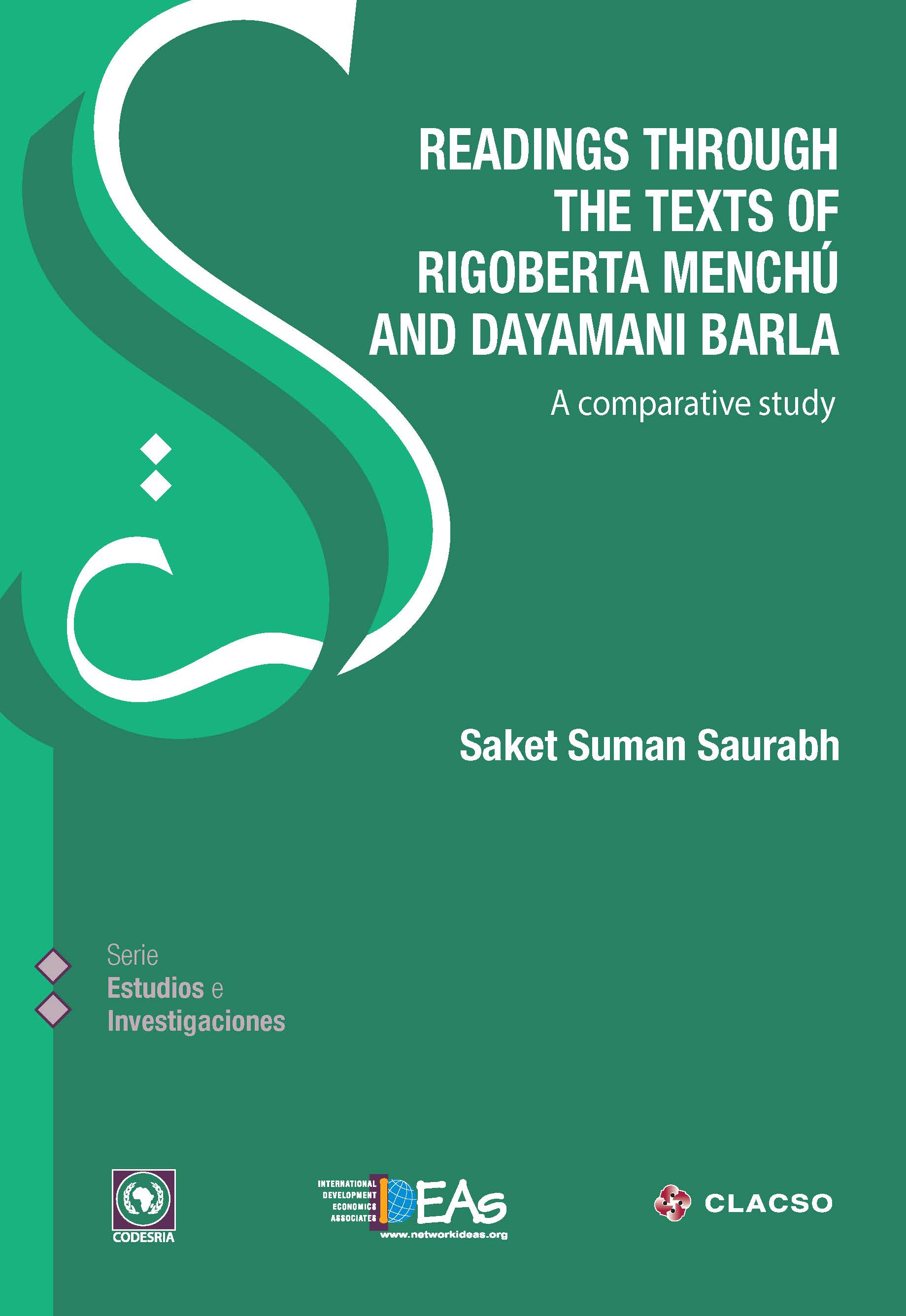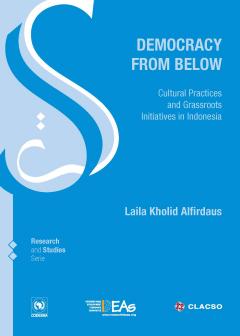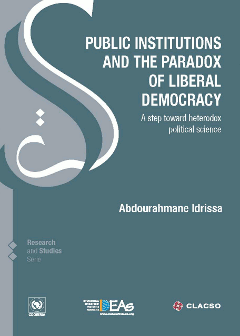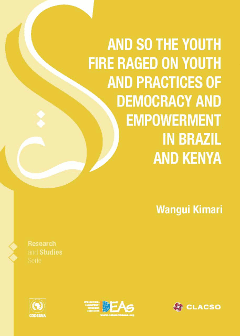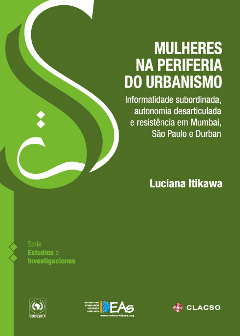- Sur-Sur.
Occasional Paper Series COD #8
Constructing and Deconstructing the Democratic Developmental State: The Challenges of Democratization in Nigeria and South Korea
Compartir:
The prospect of a democratic developmental state in Nigeria and South Korea is in doubt, in part because of the existing structure of the post-colonial state, its conception of development, and politics. It is significantly so as democracy is not really central to the agenda of the state with respect to these countries. Coupled with this is the wane of democracy globally, following its decline during the Athenian City-State [Aristotle: 1981]. Even liberal democracy, a correlate of the market, which the core countries of the North have been propagating in Africa and Asia has not actually taken root, because the intentions of the Western countries and the Bretton- Woods institutions spreading this type of democracy are purely exploitative, and do not seek to enthrone democracy as such (Ake: 2001, 1995, Lumumba-Kasongo: 2006, Heo and Stockton: 2005).
It would be misleading, therefore, to argue that democracy has failed in Nigeria, because it never really got underway in the first place. In Nigeria, the state, which, ought to be central to the development and democratization project, remains as repressive, undemocratic and oriented to zero-sum politics as ever. The state does not really have development on its agenda. This is not to assume that the state has not formulated development plans, policies and projects; rather they only mimic the development models of the West, which cannot be replicated in Nigeria due to historical factors among others [Ake: 1985; Omoweh & Boom: 2005, Omoweh: 2005, 2006, Kaiser and Okumu: 2004]. South Korea is far from being a liberal democracy not because of its relative economic growth, but due mainly to its model of post-colonial authoritarian and undemocratic state. The kind of development promoted by such state can hardly be sustained as evident in the economic crisis of 1997/8 from which it is yet to recover [Bang-Soon: 2003, Omoweh: 2005]. Adequate scholarly and policy attention has to be paid to so many false starts that have characterized the construction of the developmental state, especially as the debate now emphasizes its democratic component.
It would be misleading, therefore, to argue that democracy has failed in Nigeria, because it never really got underway in the first place. In Nigeria, the state, which, ought to be central to the development and democratization project, remains as repressive, undemocratic and oriented to zero-sum politics as ever. The state does not really have development on its agenda. This is not to assume that the state has not formulated development plans, policies and projects; rather they only mimic the development models of the West, which cannot be replicated in Nigeria due to historical factors among others [Ake: 1985; Omoweh & Boom: 2005, Omoweh: 2005, 2006, Kaiser and Okumu: 2004]. South Korea is far from being a liberal democracy not because of its relative economic growth, but due mainly to its model of post-colonial authoritarian and undemocratic state. The kind of development promoted by such state can hardly be sustained as evident in the economic crisis of 1997/8 from which it is yet to recover [Bang-Soon: 2003, Omoweh: 2005]. Adequate scholarly and policy attention has to be paid to so many false starts that have characterized the construction of the developmental state, especially as the debate now emphasizes its democratic component.
Detalle
- Editorial/es:CLACSO. CODESRIA. APISA.
- Ciudad de edición:Buenos Aires.
- Fecha de publicación:Enero de 2008

